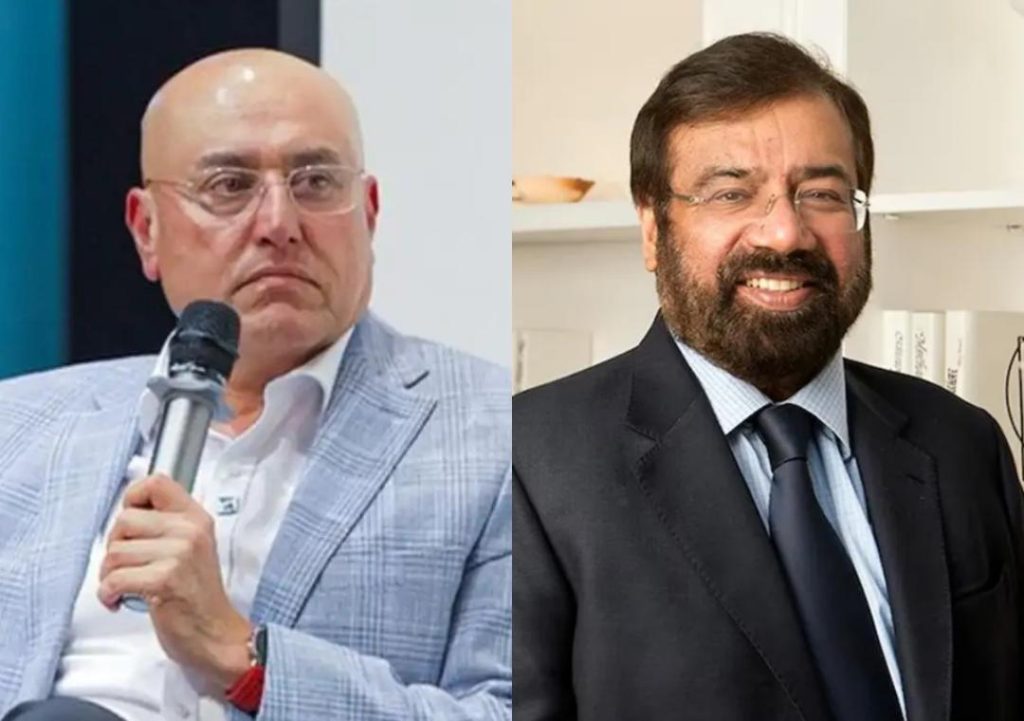
Title: Hotmail Co-founder says “Truth=anti-India”, Goenka replies “Living in US & lecturing us?”
The world of social media has always been a breeding ground for controversy and heated debates. Recently, a tweet by Hotmail co-founder Sabeer Bhatia sparked a heated discussion about the concept of truth and nationalism in India. Bhatia claimed that those who speak the truth in India are often labeled as “anti-national”. He further added, “Then who’s a national? The one who lies to you?”
Bhatia’s tweet was met with swift reaction from billionaire Harsh Goenka, who is known for his sharp wit and straight-shooting opinions. Goenka, who is the chairman of RPG Enterprises, responded to Bhatia’s tweet with a scathing criticism. He wrote, “Living in California and lecturing a billion Indians back home?… India doesn’t need sermons from those who packed up and left.”
Goenka’s response was a clear reflection of the frustration and resentment that many Indians feel towards those who have left the country and now lecture about its problems from afar. It is a common phenomenon for people who have left India to criticize its politics, economy, and society, often without understanding the complexities and nuances of the country.
Bhatia’s claim that those who speak the truth in India are labeled as “anti-national” is also a valid concern. The term “anti-national” has been used liberally in India to silence critics and dissenting voices. It is often used to label those who speak out against the government, its policies, or its actions. This has led to a chilling effect on free speech and dissent in the country.
However, Goenka’s response also raises important questions about the responsibility that comes with speaking out against a country. Just because someone has left India does not mean they are not entitled to an opinion or criticism. In fact, many Indians who have left the country have continued to be involved in its affairs and have used their platform to speak out against injustice and inequality.
Moreover, Goenka’s criticism of Bhatia’s tweet also highlights the problem of elitism and privilege that exists in India. Many Indians who have left the country and have achieved success abroad often forget about their roots and the struggles of the common man. They often use their privilege and influence to lecture about the problems of India, without understanding the complexities of the country.
Bhatia’s tweet also raises important questions about the definition of truth and nationalism. Truth is often subjective and context-dependent. What may be considered true by one person may not be considered true by another. Nationalism, on the other hand, is often linked to a sense of identity and belonging to a particular nation or country. However, this sense of identity and belonging can also be used to justify discrimination, prejudice, and violence against those who are perceived as being different.
In conclusion, the debate between Bhatia and Goenka highlights the complexities and nuances of the concept of truth and nationalism in India. While Bhatia’s claim that those who speak the truth are labeled as “anti-national” is a valid concern, Goenka’s response also raises important questions about the responsibility that comes with speaking out against a country. The debate also highlights the problem of elitism and privilege that exists in India, where those who have achieved success abroad often forget about their roots and the struggles of the common man.
As the world becomes increasingly interconnected, it is essential to engage in constructive and respectful debates about the complexities of truth and nationalism. It is also essential to recognize the importance of free speech and dissent, and to create an environment where people can speak out without fear of retaliation or retribution.
News Source:
https://x.com/hvgoenka/status/1951337266896679142






